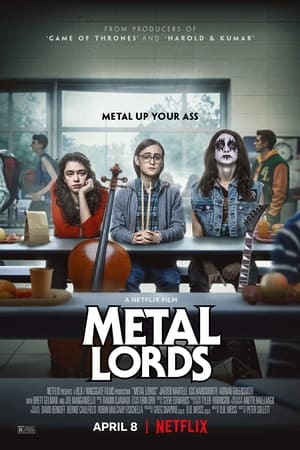
Few things are more frustrating for the ardent cinephile than watching a potentially exciting new filmmaker gradually downshift into mediocrity. Twenty years ago, Peter Sollett’s debut feature, Raising Victor Vargas (then called Long Way Home), made a small splash at Cannes, where it premiered as part of the festival’s Un Certain Regard sidebar; shot on the streets and in the tenements of New York’s Lower East Side, the film was a real knockabout charmer, with the sort of raw, scrappy, amateur-in-the-best-way energy that can make most other indies look woefully inauthentic by comparison. Rather than continue in that vein, however, Sollett quickly pivoted to glossier, star-driven fare, directing Michael Cera and Kat Dennings in an adaptation of Nick & Norah’s Infinite Playlist, then Julianne Moore and Elliot Page in the Oscar-bait issue drama Freeheld. Whether that represents the direction he wanted to take is anybody’s guess, but it’s been a mild bummer to witness. And I’m particularly sorry to report that Sollett’s latest effort, Metal Lords, falls squarely into the new and dispiriting category of Amiable, Inoffensive Netflix Original That Will Evaporate From Memory Before The App Can Even Auto-Suggest That You Start Watching Bridgerton.
In one respect, Metal Lords does return Sollett to his Victor Vargas roots: Once again, he’s working with a young cast of relative unknowns. A lot of people saw Jaeden Martell as the alt-right dweeb in Knives Out’s formidable ensemble, but he’s front and center here as Kevin, a much squishier dweeb who plays drums alongside best friend and guitarist Hunter (Adrian Greensmith, in his first film role) as a duo called Skullfucker, which Hunter angrily insists is nothing like The White Stripes. These two kids are the sole heavy metal enthusiasts in their high school, but are nonetheless determined—well, Hunter is, at least—to win a Battle of the Bands contest that’ll be judged by their peers. Ultimately, they decide that Skullfucker needs a bass player and start auditioning candidates…though Kevin finds himself irresistibly drawn toward Emily (Isis Hainsworth), a shy Scottish ex-pat who plays the double bass and gets unexpectedly aggressive when off her meds. “We’re not alt-metal,” Hunter snaps at the suggestion, and Metal Lords’ one genuinely witty exchange involves Kevin and Emily’s argument that women can rock out too:
Emily: What about Joan Jett?
Kevin: What about The Runaways?
Hunter: That’s Joan Jett.
Kevin: What about Lita Ford?
Hunter: That’s The Runaways.
If this sounds suspiciously like a movie that might have been made 25 years ago, that’s probably because it was written by a 50-year-old man: D.B. Weiss, the guy who co-created Game Of Thrones (with David Benioff) and penned a sizable percentage of its episodes. Still, there are definitely kids who are into music dating from long before they were born, and dumbass sexism has by no means been eradicated, so it’s not as if Weiss’ quasi-nostalgic premise is entirely unworkable. It’s the formulaic monotony that turns Metal Lords into the cinematic equivalent of Muzak. Every manufactured conflict—in addition to the Emily question, Kevin briefly joins a rival band following a spat with Hunter, while Hunter’s dad (Brett Gelman) sticks Hunter in a psych ward—gets resolved exactly as you’d expect, without any of the exuberance that can sometimes make a narrative cliché sing. And while all three of the lead actors are mildly appealing, they’re saddled with thin, lightweight characters who lack any hint of existing when they’re not actually onscreen. Hainsworth’s jittery, wide-eyed performance, which sometimes reads as the actor’s real-life anxiety, gives Emily a live-wire unpredictability that commands attention; she reminds me a bit of Melonie Diaz, the most subsequently successful Raising Victor Vargas cast member (currently starring in the CW’s Charmed reboot). For the most part, though, this movie plays like School of Rock minus Jack Black’s regular injections of expertly controlled manic ferocity.
Among the pleasures of Linklater’s film was that the kids all played their own instruments. That at least appears to be the case here, too, though I couldn’t help but notice that the end credits cite axe legend Steve Vai for “additional guitar services.” (There are also onscreen cameos by Judas Priest’s Rob Halford, Metallica’s Kirk Hammett, Anthrax’s Scott Ian, and Rage Against The Machine’s Tom Morello; Morello even cowrote Skullfucker’s main song, “Machinery of Torment.” Unfortunately, the cameos involve one of those fantasy sequences in which the protagonist’s heroes show up at a key moment to offer advice, a bit as hackneyed as everything else in the movie.) At the very least, Martell, Greensmith and Hainsworth do a creditable job of making it look as if they’re actually playing, and Metal Lords is strongest during its musical numbers, which communicate a legitimate joy in thrashing. Sollett recognizes that, too, ending the film with Skullfucker’s rehearsal performance of Black Sabbath’s “War Pigs,” which actually sounds pretty great with its vocal melody bowed on double bass. At moments like this, you can catch a glimpse of the filmmaker that Sollett had initially appeared to be: one who’s primarily interested in youthful spontaneity and unbridled enthusiasm, stripped of any programmatic, algorithm-friendly gears. With any luck, he’ll eventually find his own long way home.
One of the first notable online film critics, having launched his site The Man Who Viewed Too Much in 1995, Mike D’Angelo has also written professionally for Entertainment Weekly, Time Out New York, The Village Voice, Esquire, Las Vegas Weekly, and The A.V. Club, among other publications. He’s been a member of the New York Film Critics Circle and currently blathers opinions almost daily on Patreon.
In one respect, Metal Lords does return Sollett to his Victor Vargas roots: Once again, he’s working with a young cast of relative unknowns. A lot of people saw Jaeden Martell as the alt-right dweeb in Knives Out’s formidable ensemble, but he’s front and center here as Kevin, a much squishier dweeb who plays drums alongside best friend and guitarist Hunter (Adrian Greensmith, in his first film role) as a duo called Skullfucker, which Hunter angrily insists is nothing like The White Stripes. These two kids are the sole heavy metal enthusiasts in their high school, but are nonetheless determined—well, Hunter is, at least—to win a Battle of the Bands contest that’ll be judged by their peers. Ultimately, they decide that Skullfucker needs a bass player and start auditioning candidates…though Kevin finds himself irresistibly drawn toward Emily (Isis Hainsworth), a shy Scottish ex-pat who plays the double bass and gets unexpectedly aggressive when off her meds. “We’re not alt-metal,” Hunter snaps at the suggestion, and Metal Lords’ one genuinely witty exchange involves Kevin and Emily’s argument that women can rock out too:
Emily: What about Joan Jett?
Kevin: What about The Runaways?
Hunter: That’s Joan Jett.
Kevin: What about Lita Ford?
Hunter: That’s The Runaways.
If this sounds suspiciously like a movie that might have been made 25 years ago, that’s probably because it was written by a 50-year-old man: D.B. Weiss, the guy who co-created Game Of Thrones (with David Benioff) and penned a sizable percentage of its episodes. Still, there are definitely kids who are into music dating from long before they were born, and dumbass sexism has by no means been eradicated, so it’s not as if Weiss’ quasi-nostalgic premise is entirely unworkable. It’s the formulaic monotony that turns Metal Lords into the cinematic equivalent of Muzak. Every manufactured conflict—in addition to the Emily question, Kevin briefly joins a rival band following a spat with Hunter, while Hunter’s dad (Brett Gelman) sticks Hunter in a psych ward—gets resolved exactly as you’d expect, without any of the exuberance that can sometimes make a narrative cliché sing. And while all three of the lead actors are mildly appealing, they’re saddled with thin, lightweight characters who lack any hint of existing when they’re not actually onscreen. Hainsworth’s jittery, wide-eyed performance, which sometimes reads as the actor’s real-life anxiety, gives Emily a live-wire unpredictability that commands attention; she reminds me a bit of Melonie Diaz, the most subsequently successful Raising Victor Vargas cast member (currently starring in the CW’s Charmed reboot). For the most part, though, this movie plays like School of Rock minus Jack Black’s regular injections of expertly controlled manic ferocity.
Among the pleasures of Linklater’s film was that the kids all played their own instruments. That at least appears to be the case here, too, though I couldn’t help but notice that the end credits cite axe legend Steve Vai for “additional guitar services.” (There are also onscreen cameos by Judas Priest’s Rob Halford, Metallica’s Kirk Hammett, Anthrax’s Scott Ian, and Rage Against The Machine’s Tom Morello; Morello even cowrote Skullfucker’s main song, “Machinery of Torment.” Unfortunately, the cameos involve one of those fantasy sequences in which the protagonist’s heroes show up at a key moment to offer advice, a bit as hackneyed as everything else in the movie.) At the very least, Martell, Greensmith and Hainsworth do a creditable job of making it look as if they’re actually playing, and Metal Lords is strongest during its musical numbers, which communicate a legitimate joy in thrashing. Sollett recognizes that, too, ending the film with Skullfucker’s rehearsal performance of Black Sabbath’s “War Pigs,” which actually sounds pretty great with its vocal melody bowed on double bass. At moments like this, you can catch a glimpse of the filmmaker that Sollett had initially appeared to be: one who’s primarily interested in youthful spontaneity and unbridled enthusiasm, stripped of any programmatic, algorithm-friendly gears. With any luck, he’ll eventually find his own long way home.
One of the first notable online film critics, having launched his site The Man Who Viewed Too Much in 1995, Mike D’Angelo has also written professionally for Entertainment Weekly, Time Out New York, The Village Voice, Esquire, Las Vegas Weekly, and The A.V. Club, among other publications. He’s been a member of the New York Film Critics Circle and currently blathers opinions almost daily on Patreon.
Categories: music, netflix originals






